Delfino family’s third generation expands El Dorado County apple-growers’ portfolio with Edio Vineyards.
“You can tell I was taught to make Pinot Noir,” agreed winemaker Peter Delfino after I noted the Pinot-like texture, perfumey aromas, and cleanliness on the palate of the 2019 Edio Vineyards Mourvèdre. “My style is to work for delicacy, not trying to extract too much, using French oak (23% new for 16 months) more for tannin structure than flavor,” Delfino continued. Despite the preceding description, this terrific wine tasted very much like a California Mourvèdre.
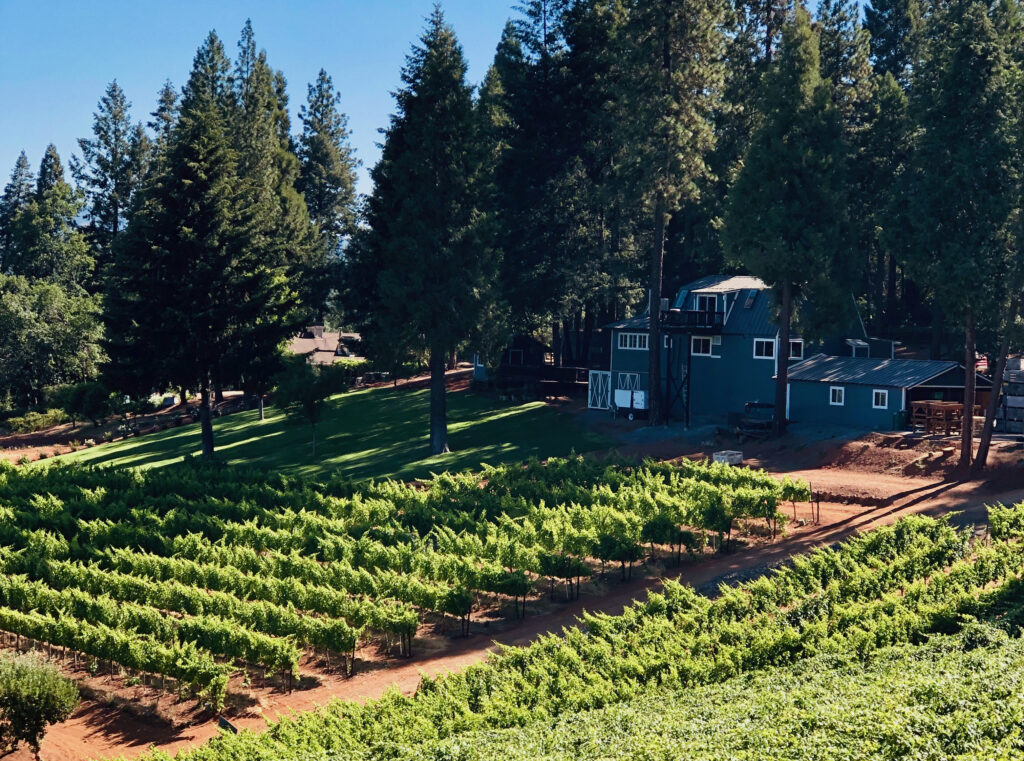
The Mourvèdre’s grapes come from the estate vineyard at elevation 3,100 feet in Camino, California (near Placerville), and David Girard Vineyards, about 15 miles away, 1,400 feet or so above sea level. Both vineyards lie within El Dorado AVA (American Viticultural Area), a subappellation of the Sierra Foothills AVA. The 2019 sold out, but a later vintage is available at the Delfino Farms—Edio Vineyards tasting room and online.
Three other noteworthy wines tasted were the 2020 Estate Albariño, 2020 Rosé of Mourvèdre, and 2019 Canavese Cab Blend (80% Cabernet Sauvignon, 20% Syrah). Peter, who fermented and aged both the Albariño and the rosé in stainless steel tanks “to retain their acidity and freshness,” attributes the Albariño’s distinct minerality to a granitic vein that runs through the Camino vineyard. The Albariño block is only 2 acres, so this wine sells out quickly each vintage, as does the rosé, whose grapes are all from David Girard.
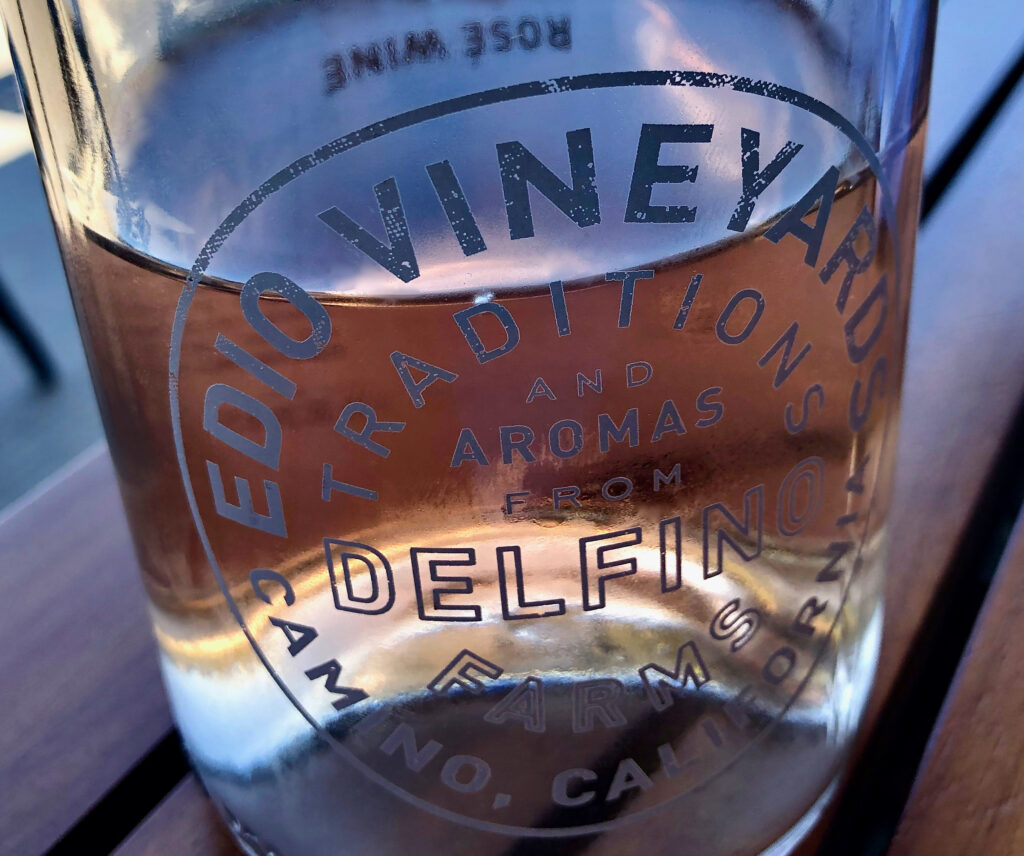
The robust Canavese blend was more fruit-driven than the Mourvèdre, though the mouthfeel was sensual and refined in keeping with Peter’s sensibility. The Syrah added savory and black-fruit accents. The Cabernet comes from a second Delfino property, the Syrah from David Girard.
Labels Pay Tribute
Except for the rosé, the winery’s labels bear the image of Edio Delfino. Famous in El Dorado County as an agricultural commissioner and apple farmer, he cofounded the Apple Hill Growers, whose Placerville-area members now host a million guests annually for fruit-picking and other activities. The region had previously been known for Bartlett pears, but by the 1960s, pear blight had destroyed most of the trees. Prompted by Edio and other peers, local farmers transitioned to apples and began promoting agritourism.
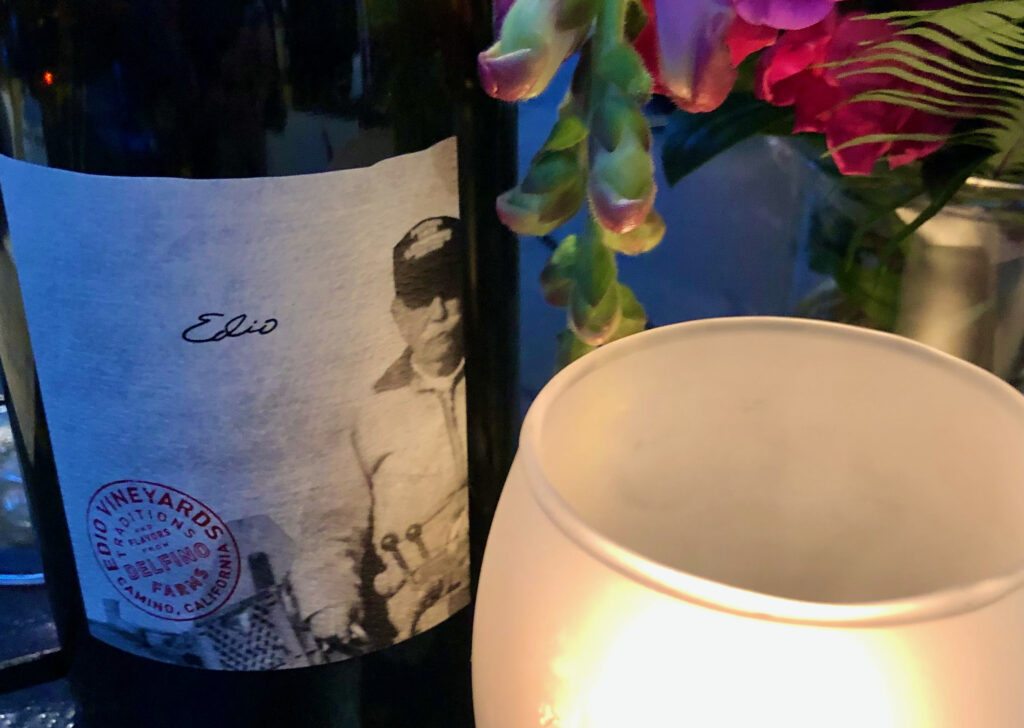
The Delfino family’s story is classic American Dream material. Edio was born in the U.S. shortly after his family emigrated from Genoa. “That was in 1930,” said Peter. “My great grandparents were fleeing Mussolini. They ended up in St. Helena, starting a vineyard they sold in 1970.” By this time, Edio had begun buying land in Camino that’s now part of Delfino Farms. In business since 1964, Delfino Farms is well known locally for its apples and pies and other baked goods.
Why Don’t We Do a Winery?
Wine grapes have been grown in El Dorado County since the 1800s, but the modern winemaking era didn’t begin until Greg Boeger opened his namesake winery in 1972, with families like the Bushes (Madroña Vineyards, established in 1973) and the Joneses (Lava Cap Winery, 1982) following suit.
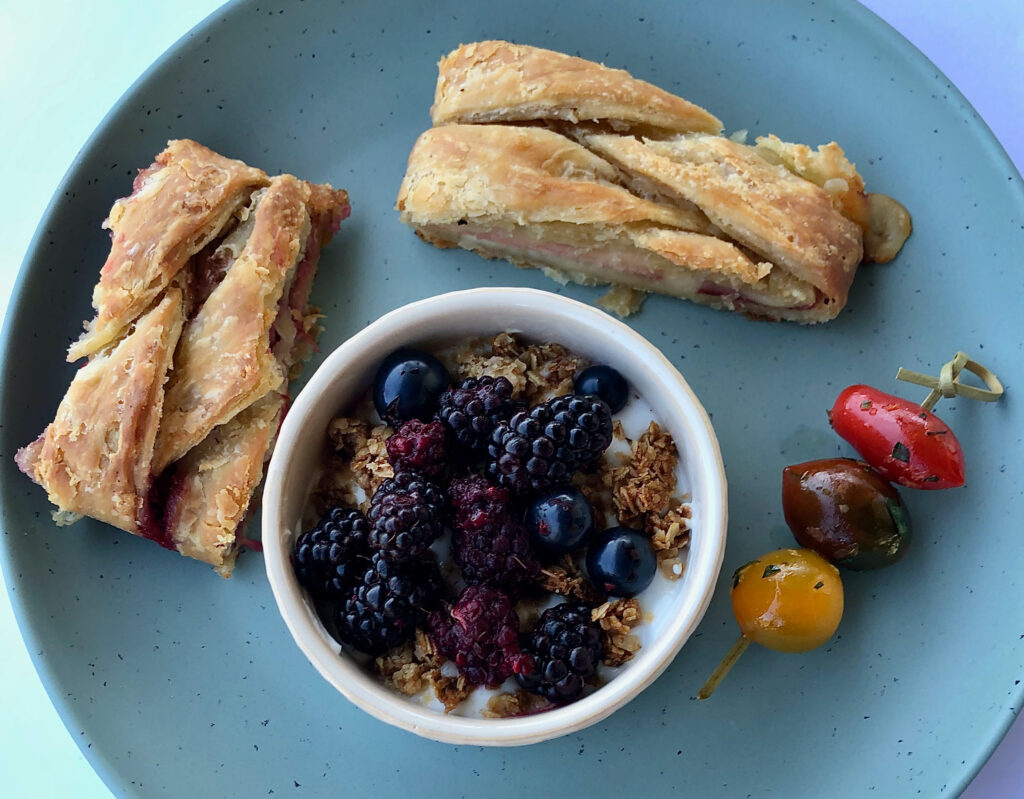
By all accounts, Edio Vineyards is the brainchild of Peter’s older sister, Christine. In the early 2000s, she noticed how many of their neighbors had become grape growers, opened a winery, or both. As Peter tells it, “Christine at 17 said, ‘Look at the Bushes and Joneses and all these great wines they’re making. Why don’t we do a winery, too?’ It’s a testament to my parents that they jumped on board. They planted the vineyard in 2007.”
Christine, meanwhile, headed to Cal Poly San Luis Obispo, majoring in agricultural marketing with a wine emphasis and later earning a master’s degree in agritourism. “I fell in love with the wine business down there,” said Christine. “I worked at Denner Vineyards in Paso Robles and then Chamisal Vineyards in Edna Valley, all on the business side.”
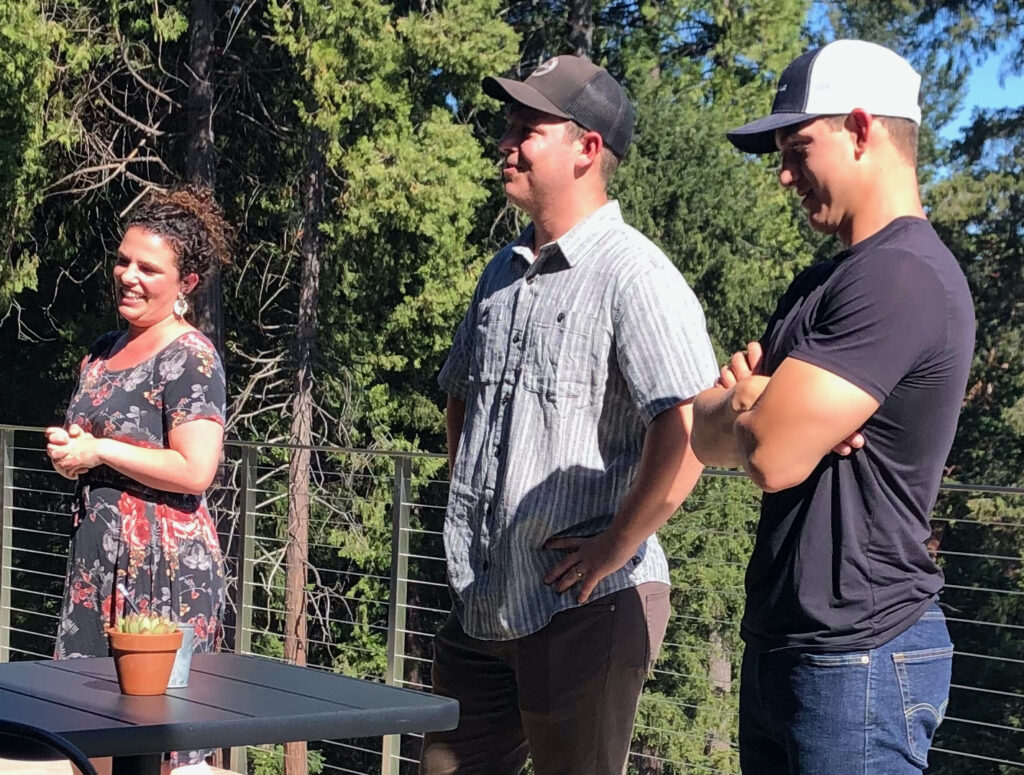
All in the Family
In the interest of keeping the enterprise all in the family, Christine, a woman who determines men’s fates (or at least those of her brothers), tapped siblings Peter, Derek, and Ben to join the enterprise.
“When I was about 15,” said Peter, my sister asked, ‘Why don’t you make our wine?’ So that’s why I went to Cal Poly for enology. I stayed down there for about ten years, at Stephen Ross Wine Cellars and Tolosa, before coming back here.”
“I was even younger than Peter, 11 or 12, when,” added Derek, “my sister said, ‘You should be the vineyard manager.’ And I was like, okay. I’ve always loved farming, watching plants grow, being outside. I always say that it gave me direction: I always wanted to be the vineyard manager. I always wanted to go to Cal Poly. I always wanted to study viticulture.”
Christine was the wine club manager at Chamisal when she got Derek, at age 18, his first job, working in the cellar. “I didn’t know anything about wine,” he said. “She told me not to mess it up, so I worked as hard as I could, and then I went to Law Estate in Paso Robles and then Ridge Vineyards in Sonoma County to learn more.” Per Christine, brother Ben is publicity-shy but very much a part of the farming team.
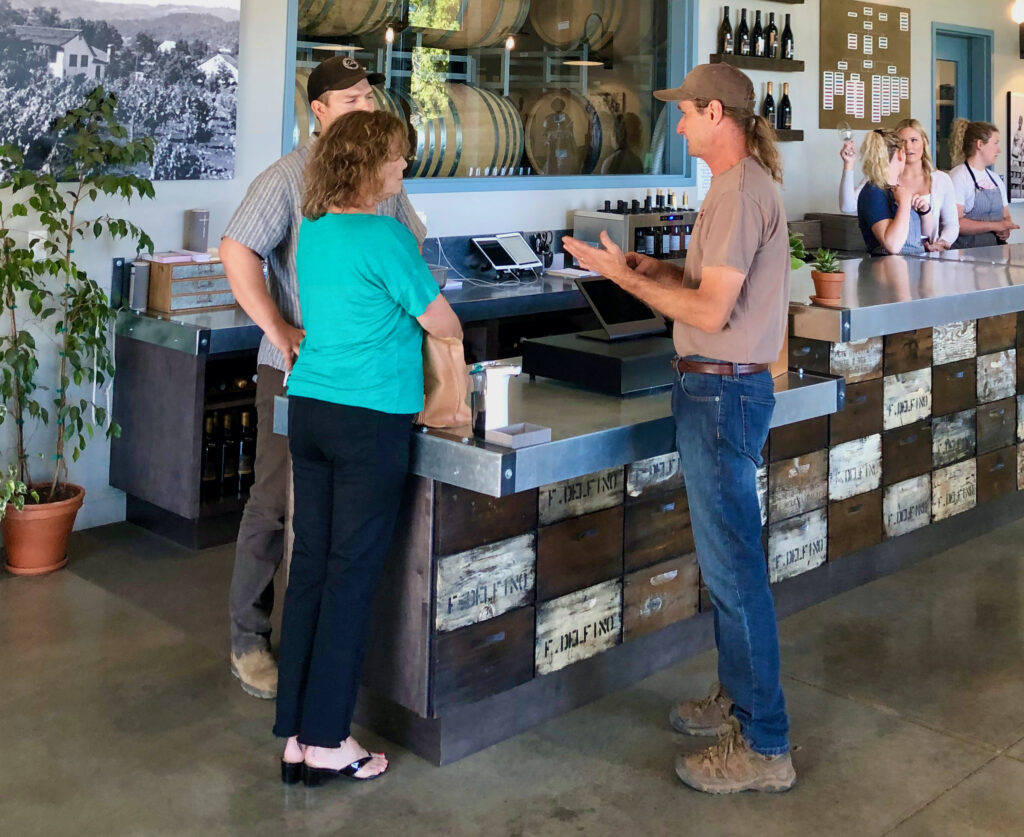
Enchanting Setting
The culmination of all this schooling and real-world experience, the first Edio Vineyards vintage didn’t appear until 2018. Peter made those wines at Lava Cap, producing subsequent ones at the family’s combination production facility and hospitality space in Camino. The tasting room‘s deck perches over Albariño vines, beyond which lie an apple orchard and more grapevines. Pines and Douglas firs ring the property. It’s an enchanting setting to sample the output of a winemaker who, like his siblings, is just beginning to make a mark.
Why go: family-owned business; high-elevation setting; winemaker’s distinctive style.
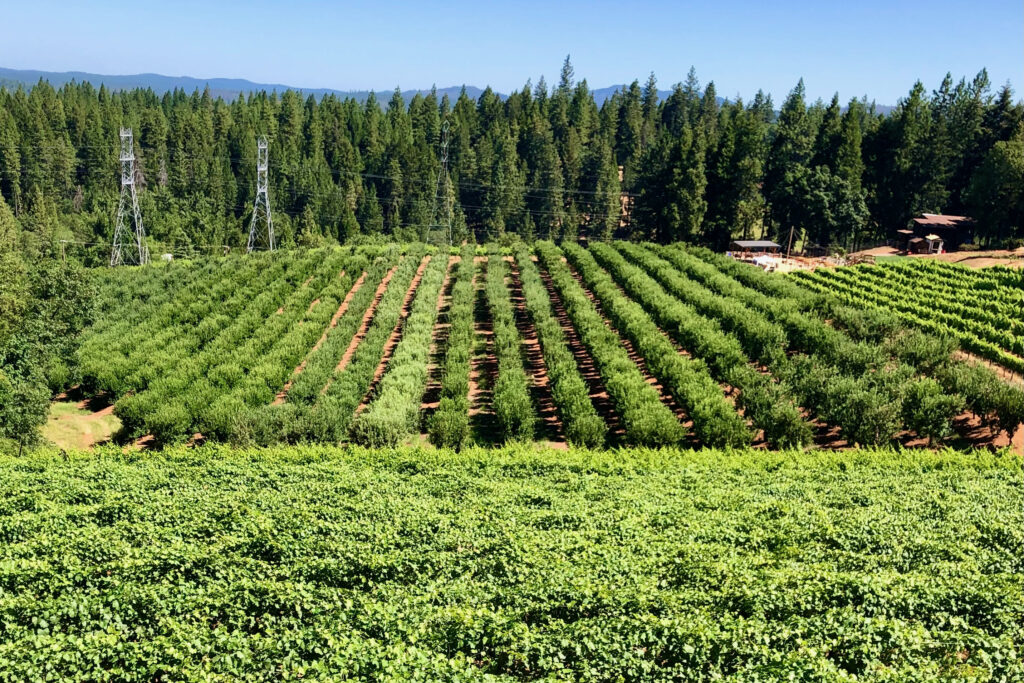
Info
3205 N. Canyon Rd. Bldg 1, Camino 95709
More About the Gold Country
Daniel Mangin is the author of Fodor’s Napa and Sonoma and contributes to Fodor’s California, including the Sacramento and the Gold Country chapter.
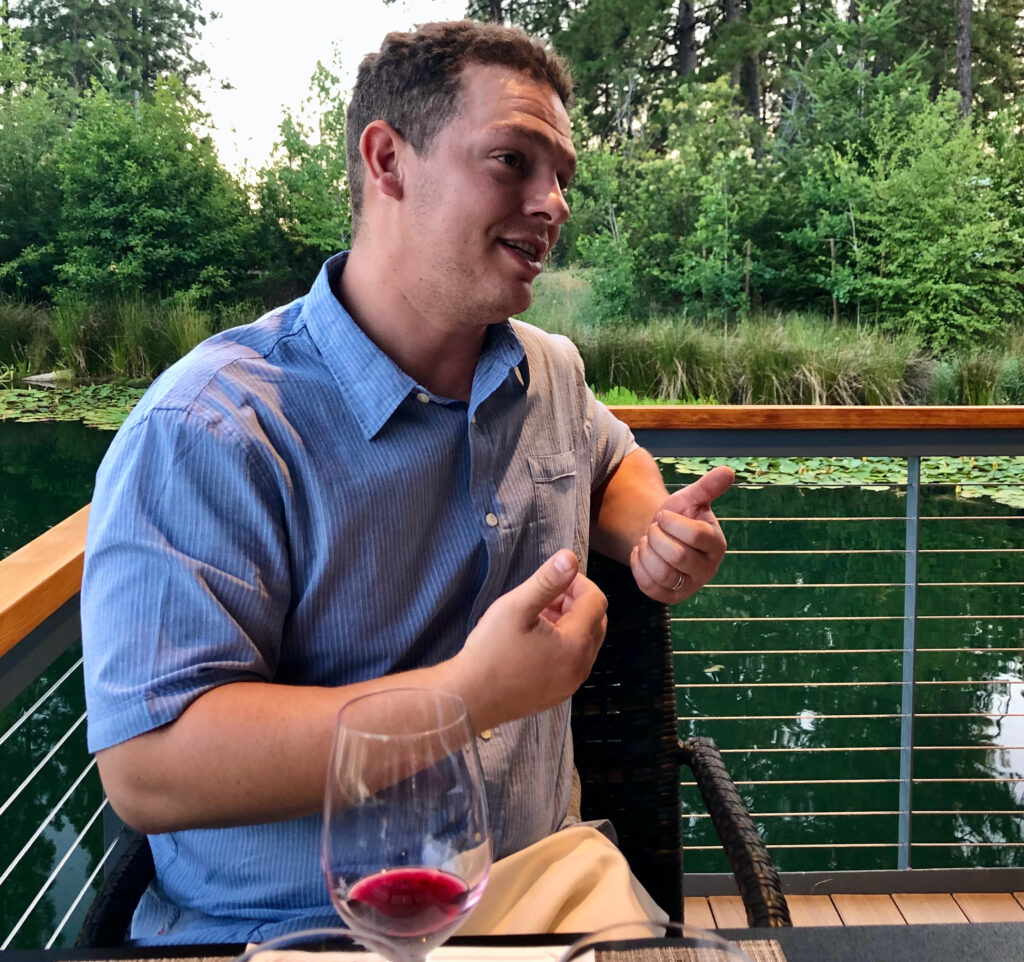
Pingback: STORY INDEX BY REGION – Daniel Mangin
Pingback: 8 Ways Lovable Lodi Tickles My Fancy – Daniel Mangin